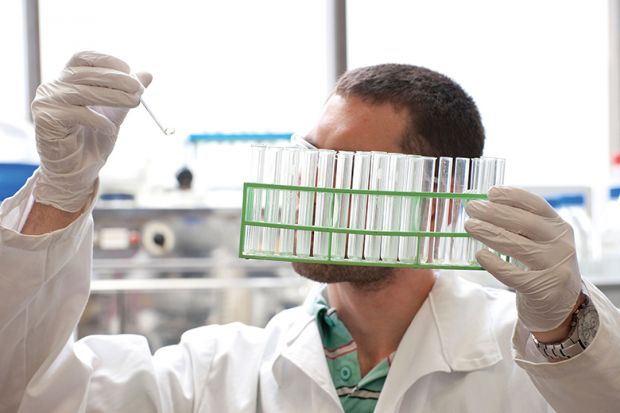A quarter of UK universities, including some of the most prestigious institutions in the country, have signed up to an initiative to boost the working prospects of technicians in higher education.
The “Technician Commitment”, a sector-wide collaboration led by the Science Council and supported by the Gatsby Charitable Foundation’s “Technicians Make It Happen” campaign, aims to “ensure visibility, recognition, career development and sustainability for technicians working in higher education and research”, and pledges action to address the five challenges affecting university technical staff.
So far, 36 universities and research institutions have signed the commitment – launched on 31 May at the Higher Education Technicians Summit at the University of Warwick – including two-thirds of the Russell Group. It follows a recent drive by the Science Council to introduce professional recognition across the sector as a means of benchmarking standards within the academy.
Abigail Mortimer, chief scientific glassblower in the University of York’s department of chemistry, told Times Higher Education that it was a good thing that universities were committed to recognising the skill of the technical staff, who, albeit not necessarily deliberately, “possibly do get taken for granted”.
“This is a recognition that things have to change,” she said. “It’s a commitment from universities to recognise technicians, to recognise the shortfall in technicians, and [making] a commitment to changing that.
“Those changes certainly aren’t going to happen instantly because there would be an element of doing an assessment of the skill set you have within a university, assessing where the shortfalls are and then addressing them.”
The commitment notes how important highly skilled technicians are in providing “the technical expertise essential to supporting research and knowledge transfer”.
The commitment acknowledges that, despite their importance, technicians have not been well-recognised and career and professional development has been “overlooked”. It adds that the “ageing technical workforce also means that large numbers of highly-skilled technicians are retiring every year. The UK now faces an identified shortage of technicians."
Ms Mortimer said that “addressing the shortfalls” was imperative for the sector, after signing the commitment.
“I think because technicians are highly skilled, if someone moves away from that, it’s hard to recruit those skills back,” she said. “In some areas, they haven’t been recruited back.”
Sir David Greenaway, vice-chancellor of the University of Nottingham, said technicians were “absolutely fundamental” to higher education and those institutions that did not deliver on their commitment would risk losing “credibility within your own workforce”.
“They [technicians] probably haven’t had the visibility they deserve,” he said. “[We need to] ensure that we’re investing appropriately in them as individuals and as a workforce just as we do with our teaching and research staff.”
Tim Softley, pro vice-chancellor for research and knowledge transfer at the University of Birmingham, conceded that at an institutional level “it does feel like we’re coming to this late in the day”.
“One of the other big issues we face as universities is sustaining the flow of people into these jobs,” he said. “We need to make sure the conditions are right for them, that there’s a career structure, opportunities for developing their careers, and opportunities to move more between universities and industry.”
Register to continue
Why register?
- Registration is free and only takes a moment
- Once registered, you can read 3 articles a month
- Sign up for our newsletter
Subscribe
Or subscribe for unlimited access to:
- Unlimited access to news, views, insights & reviews
- Digital editions
- Digital access to THE’s university and college rankings analysis
Already registered or a current subscriber?






